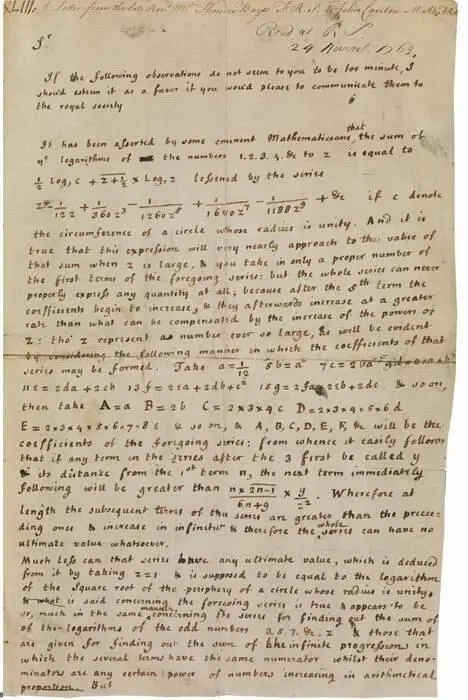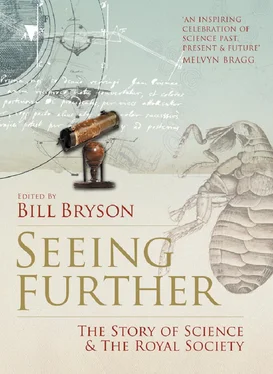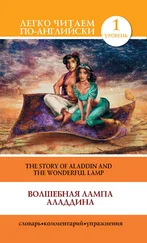Seeing Further
THE STORY OF SCIENCE & THE ROYAL SOCIETY
EDITED & INTRODUCED BY BILL BRYSON
CONTRIBUTING EDITOR JON TURNEY

Cover Page
Title Page Seeing Further THE STORY OF SCIENCE & THE ROYAL SOCIETY EDITED & INTRODUCED BY BILL BRYSON CONTRIBUTING EDITOR JON TURNEY
BILL BRYSONINTRODUCTION
1 JAMES GLEICKAT THE BEGINNING: MORE THINGS IN HEAVEN AND EARTH
2 MARGARET AT WOODOF THE MADNESS OF MAD SCIENTISTS: JONATHAN SWIFT’S GRAND ACADEMY
3 MARGARET WERTHEIMLOST IN SPACE: THE SPIRITUAL CRISIS OF NEWTONIAN COSMOLOGY
4 NEAL STEPHENSONATOMS OF COGNITION: METAPHYSICS IN THE ROYAL SOCIETY, 1715-2010
5 REBECCA NEWBERGER GOLDSTEINWHAT’S IN A NAME? RIVALRIES AND THE BIRTH OF MODERN SCIENCE
6 SIMON SCHAFFERCHARGED ATMOSPHERES: PROMETHEAN SCIENCE AND THE ROYAL SOCIETY
7 RICHARD HOLMESA NEW AGE OF FLIGHT: JOSEPH BANKS GOES BALLOONING
8 RICHARD FORTEYARCHIVES OF LIFE: SCIENCE AND COLLECTIONS
9 RICHARD DAWKINSDARWIN’S FIVE BRIDGES: THE WAY TO NATURAL SELECTION
10 HENRY PETROSKIIMAGES OF PROGRESS: CONFERENCES OF ENGINEERS
11 GEORGINA FERRYX-RAY VISIONS: STRUCTURAL BIOLOGISTS AND SOCIAL ACTION IN THE TWENTIETH CENTURY
12 STEVE JONESTEN THOUSAND WEDGES: BIODIVERSITY, NATURAL SELECTION AND RANDOM CHANGE
13 PHILIP BALLMAKING STUFF: FROM BACON TO BAKELITE
14 PAUL DAVIESJUST TYPICAL: OUR CHANGING PLACE IN THE UNIVERSE
15 IAN STEWARTBEHIND THE SCENES: THE HIDDEN MATHEMATICS THAT RULES OUR WORLD
16 JOHN D. BARROWSIMPLE REALLY: FROM SIMPLICITY TO COMPLEXITY – AND BACK AGAIN
17 OLIVER MORTONGLOBE AND SPHERE, CYCLES AND FLOWS: HOW TO SEE THE WORLD
18 MAGGIE GEEBEYOND ENDING: LOOKING INTO THE VOID
19 STEPHEN H. SCHNEIDERCONFIDENCE, CONSENSUS AND THE UNCERTAINTY COPS: TACKLING RISK MANAGEMENT IN CLIMATE CHANGE
20 GREGORY BENFORDTIME: THE WINGED CHARIOT
21 MARTIN REESCONCLUSION: LOOKING FIFTY YEARS AHEAD
Picture Acknowledgments
Acknowledgments
Copyright
About the Publisher
Bill Bryson is the internationally bestselling author of The Lost Continent , Mother Tongue , Neither Here Nor There , Made in America , Notes from a Small Island , A Walk in the Woods , Notes from a Big Country , Down Under , The Life and Times of the Thunderbolt Kid and A Short History of Nearly Everything , which was shortlisted for the Samuel Johnson Prize, won the Aventis Prize for Science Books in 2004, and was awarded the Descartes Science Communication Prize in 2005.
I CAN TELL YOU AT ONCE THAT MY FAVOURITE FELLOW OF THE ROYAL SOCIETY WAS THE REVEREND THOMAS BAYES, FROM TUNBRIDGE WELLS IN KENT, WHO LIVED FROM ABOUT 1701 TO 1761. HE WAS BY ALL ACCOUNTS A HOPELESS PREACHER, BUT A BRILLIANT MATHEMATICIAN. AT SOME POINT – IT IS NOT CERTAIN WHEN – HE DEVISED THE COMPLEX MATHEMATICAL EQUATION THAT HAS COME TO BE KNOWN AS THE BAYES THEOREM, WHICH LOOKS LIKE THIS:

People who understand the formula can use it to work out various probability distributions – or inverse probabilities, as they are sometimes called. It is a way of arriving at statistical likelihoods based on partial information. The remarkable feature of Bayes’ theorem is that it had no practical applications in his own lifetime. Although simple cases yield simple sums, most uses demand serious computational power to do the volume of calculations. So in Bayes’ day it was simply an interesting but largely pointless exercise.
Bayes evidently thought so little of his theorem that he didn’t bother to publish it. It was a friend who sent it to the Royal Society in London in 1763, two years after Bayes’ death, where it was published in the Society’s Philosophical Transactions with the modest title of ‘An Essay Towards Solving a Problem in the Doctrine of Chances’. In fact, it was a milestone in the history of mathematics. Today, with the aid of supercomputers, Bayes’ theorem is used routinely in the modelling of climate change and weather forecasting generally, in interpreting radiocarbon dates, in social policy, astrophysics, stock market analysis, and wherever else probability is a problem. And its discoverer is remembered today simply because nearly 250 years ago someone at the Royal Society decided it was worth preserving his work, just in case.
The Royal Society has been doing interesting and heroic things like this since 1660 when it was founded, one damp weeknight in late November, by a dozen men who had gathered in rooms at Gresham College in London to hear Christopher Wren, twenty-eight years old and not yet generally famous, give a lecture on astronomy. It seemed to them a good idea to form a Society – that is all they called it at first – to assist and promote the accumulation of useful knowledge.
Nobody had ever done anything quite like this before, or would ever do it half as well again. The Royal Society (it became royal with the granting of a charter by Charles II in 1662) invented scientific publishing and peer review. It made English the primary language of scientific discourse, in place of Latin. It systematised experimentation. It promoted – indeed, insisted upon – clarity of expression in place of high-flown rhetoric. It brought together the best thinking from all over the world. It created modern science.
Nothing, it seems, was beneath its attention. Society members took an early interest in microscopy, woodland management, architectural load bearing,

Letter from Thomas Bayes to John Canton concerning logarithms, 24 November 1763.
the behaviour of gases, the development of the pocket watch, the thermal expansion of glass. Before most people had ever tasted a potato, the Royal Society debated the practicality of making it a staple crop in Ireland (ironically, as a hedge against famine). Two years after its formation, Christopher Merret, one of the founding Fellows, demonstrated a method for fermenting wine twice over, endowing it with a pleasing effervescence. He had, in short, invented champagne. The next year John Aubrey contributed a paper on the ancient stone monuments at Avebury, and so effectively created archaeology. John Locke contributed a paper on the poisonous fish of the Bahamas. And so it went on, decade after productive decade. When Benjamin Franklin flew his kite in a thunderstorm it was for the Royal Society that he very nearly killed himself. When a gas holder in Woolwich exploded with devastating consequences or gunpowder repeatedly failed to ignite or the navy needed a cure for scurvy, the Royal Society was called in to advise.
At least three things have always set the Society apart. First, from the outset, it was truly international. In 1665, Henry Oldenburg, himself German born, became editor of the Society’s first journal (now one of seven), which was given the full and satisfying name Philosophical Transactions: Giving some Accompt of the Present Undertakings, Studies and Labours of the Ingenious in many Considerable Parts of the World. No words from the Society’s early annals have more significance than that phrase ‘many Considerable Parts of the World’.
Читать дальше















